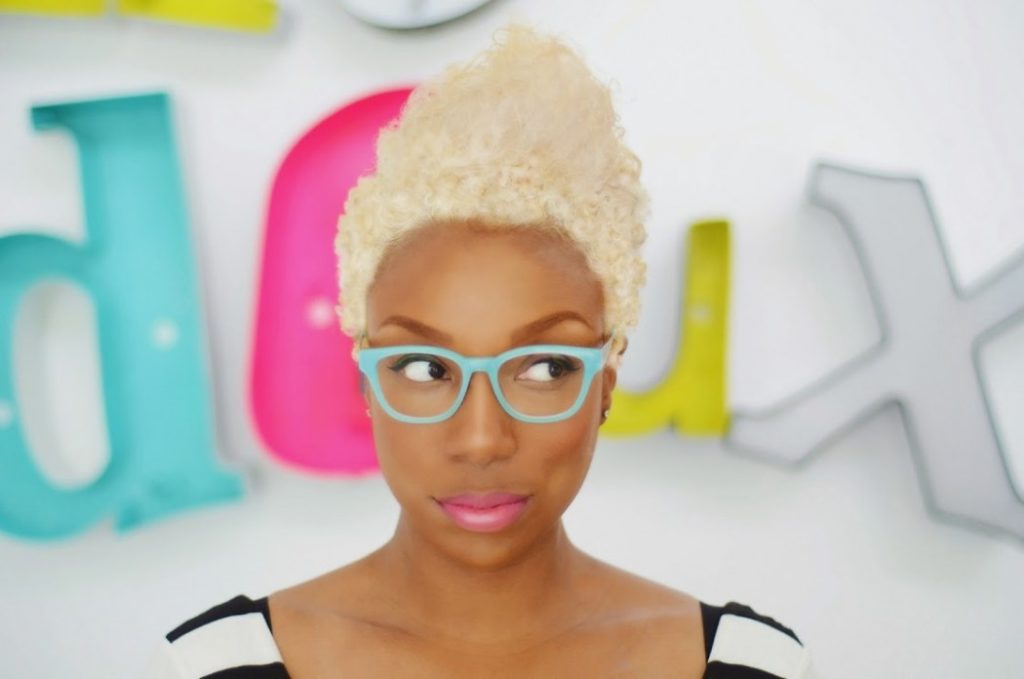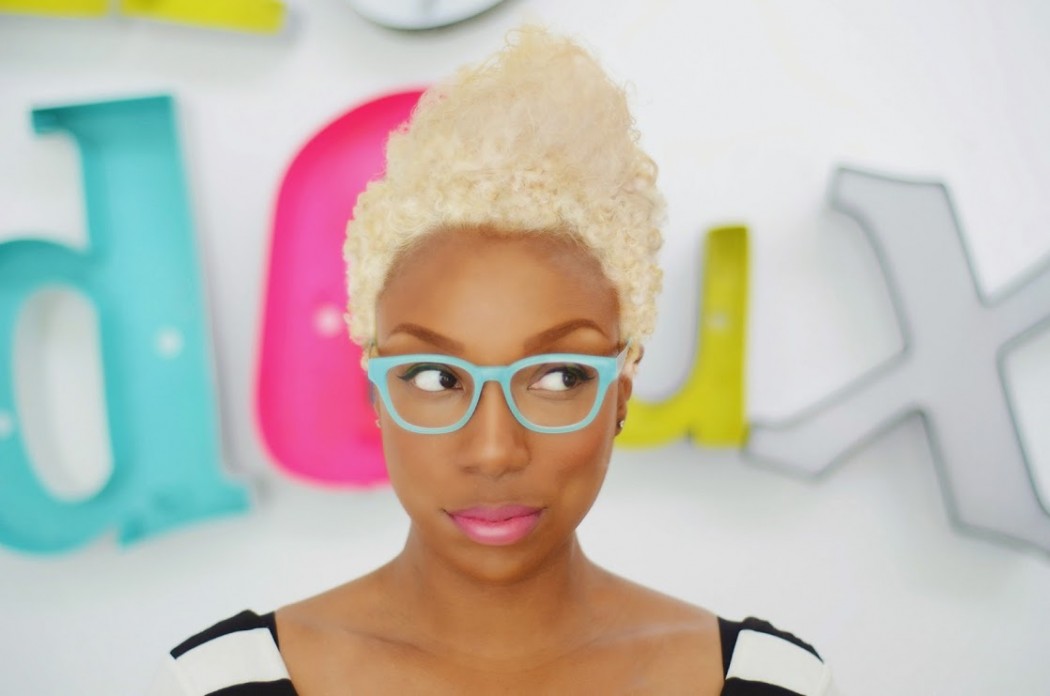
learned from celebrity stylist Tracy Johnson and eventually mastered her own craft and blazed her own rails when the military wife relocated to Germany and eventually opened up her first salon The HoneyComb. It became a a mecca for textured hair care for women from all over Europe, The UK, and as far as Africa.
The newest byproduct from the fame is Smith’s haircare line called The DOUX® which was developed from Smith’s unique system of textured hair styling. It was first launched overseas, and distributed throughout Germany, France, Italy, and the Netherlands.
Smith’s specialty is naturally curly hair so it’s no wonder she is an expert who has seen the evolution of mousse from the very beginning to now. We caught up with Maya and scored some amazing tips and insights to help you know which ingredients to look for and how to best use mousse to maximize your modern style.
Styling mousse first came on the scene back in the 80’s when big hair was the thing. Janet Jackson and Whitney Houston were the ladies who set the hair trends back then.
I’m sure if you see pictures of your mom from the 80’s, you will see the waterfall bangs and curls that were teased, fried and crunchy. It was a cool look then. It’s not cool now. Hair styles and the products we use have changed over the decades.
Here’s a breakdown from a Q&A:
Q: First to get things clear, what is the purpose of mousse? How has it changed from when you first saw it back in the day? What is the main difference from the mousse we see today and those from the 80’s and 90’s? Were they intended for different kinds of styles, textures?
A: When I started in the industry, the 90’s hair was in full effect. Naturally curly girls used mousse to create the Hillary Banks (Fresh Prince of Bel Air) “wet” look. For volume a diffuser was used to get hair to stand up at the roots. The visual results were awesome, but if you tried to re-style your hair once it dried, you were in big trouble! While it was used on curly weaves, extensions, and wigs, mousse wasn’t even an option for girls with super-tight curls or kinky textures. These days, mousse is still used to achieve great definition and shine, but less emphasis is placed on how high your hair stands up, or how stiff the overall look is. It’s much more about softness and movement.
Q: What are some ingredients to look for? What’s good and what should be avoided?
A: Always be sure to look at the ingredients when shopping for products because this can make a big difference. Ingredients such as sodium laurel sulfate (SLS), Isopropyl, and Prolyene have been found to cause breakage and dry out your hair. The best way to achieve healthy hair is to have that balance between protein and moisture.
Q: What causes that crunch and what were some of the problems with the mousse options available that inspired you to create your own? Can mousse be combined with other products? What are the benefits of combining products and steps?
A: It’s common for mousse to be combined with gel or cream because most mousses on the market contain alcohol to make the hair dry faster. They are also polymer rich, which creates a sticky coating on the hair, much like a hairspray. This can leave hair feeling dry and stiff. We formulated our Mousse Def as an all-in-one solution for this problem. It creates the shine and definition of a mousse, yet leaves hair soft and touchable with no flaking.
Q: How does mousse compare to gels and balms? Are gels a thing of the past? Can a balm be used in place of a mousse?
A: Mousse and gels are water-based products that contain polymers and holding agents that “stiffen” on the hair shaft in order to hold the hair in place. On the other hand, balms, pomades, and control pastes are what we call emulsions, are a mix of oils and water. The Doux’s Bonita Afro Balm is an emulsion developed for moisture and softness that also contains a small amount of polymer for a softer, more flexible hold.
Q: Finally, are Salon or Professional brands worth the money? Do they contain better ingredients?
A: Yes. Products that were formulated for salon use typically contain a higher quality of ingredients. They also contain less water and fillers, so you’re getting a more concentrated product with longer-standing results.
Q: What other advice can you offer to girls with natural curls who want to mix up their hair styles?
A: Try something new. Gone are the days when heavy pomades and gels were your only styling options. Girls who have natural curls deserve to enjoy lighter products that are easy to apply, and create bounce and movement. Maximizing your natural God given hair is what’s popular now.
About Maya Smith:
Maya Smith is an International Master Stylist and Founder of The Doux Salon and haircare line now available in Target. With over two decades of styling experience Maya dedicated two decades to cracking the code on curl care, maintenance and expert styling. When it comes to caring for one’s natural hair and styling it, according to NaturallyCurly, Maya is among the best there is.
While still in high school, Maya got her hair cutting license and graduated from beauty school. Soon after graduating high school, Maya began following her passion and worked as an assistant for celebrity stylist Tracy Johnson. She learned from Johnson and progressed as a hair stylist for celebrities and entertainers. Years later the military wife would relocate to Germany, where Maya opened up her first salon The HoneyComb, a mecca for textured hair care for women from all over Europe, The UK, and as far as Africa. Maya’s unique system of textured hair styling sparked the development of The DOUX® haircare products, first launched overseas, and distributed throughout Germany, France, Italy, and the Netherlands.
I am a content creator, social media agency owner, former attorney and publicist, wife and mom. I love working in cafes, wine, food and music festivals, Sunday brunch, home decorating, travel and life.
